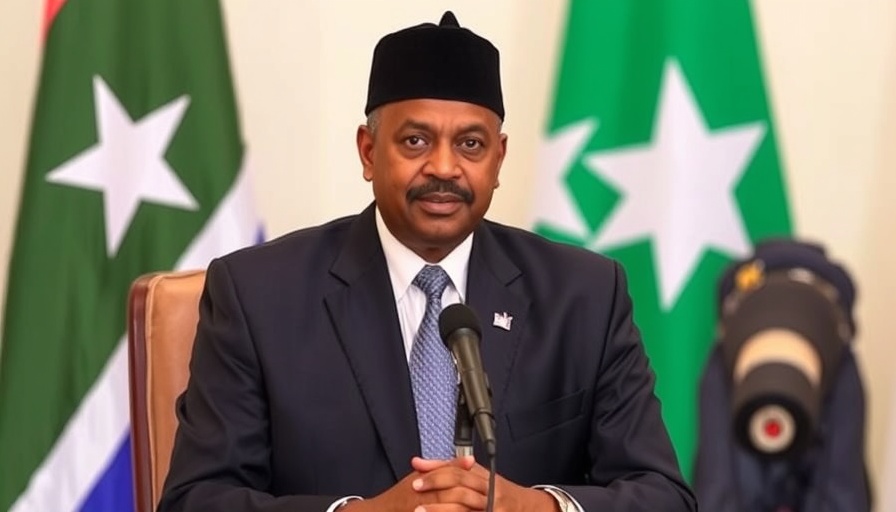
Shifting Leadership Amidst Insurgency: Somalia's New Defense Minister
In a significant political shake-up, Somalia’s Prime Minister Hamza Abdi Barre has announced a government reshuffle, now appointing Ahmed Moallim Fiqi Ahmed as the new Minister of Defence. This change, coming at a crucial moment, is aimed at countering the persistent threats from the Islamist militant group, al Shabaab, which has made alarming advances in regions surrounding Mogadishu.
Barre's announcement, which appeared on the government's social media platforms, did not specify the motivations behind this transition. Yet, the timing aligns with reports of al Shabaab recently seizing villages alarmingly close to the capital, and it signals an urgent need for a robust security strategy. Ahmed's extensive background, as he previously served in both diplomatic and national security capacities, may bring a fresh perspective to the country's defense posture.
Responding to Insurgent Tactics: The Strategic Push
Al Shabaab's ongoing insurgency since 2007 has created a volatile environment, emphasizing the necessity for decisive leadership in defense. Ahmed's appointment may indicate a shift towards a more proactive military strategy. As the government wrestles with the group’s persistence, including worrisome recent territorial gains, the new defense minister is expected to bolster crisis response measures while seeking more coordinated approaches with international partners.
International Dynamics and the Future of Security in Somalia
Highlighting the precarious situation, security support from international allies is becoming increasingly uncertain. The implications of this reshuffle extend beyond domestic concerns; it may touch upon the broader geopolitical interactions of Somalia within Africa. As the government attempts to stabilize, it must navigate the complexities of foreign assistance while facing increasing autonomy demands from local factions.
What This Means for Investors and Policymakers
For stakeholders in the African economic landscape, this change atop Somalia's defense ministry underscores the intertwining of governance and development. Investors must weigh the risks associated with insecurity against potential opportunities arising from political reforms. Policymakers, on their part, should consider how these changes might facilitate a more stable environment conducive to foreign investment and economic growth.
Final Thought: A Crossroads for Somalia
The reshuffle could signify a crucial turning point as Somalia continues its fight against extremism while striving to fortify its place in the evolving African geopolitical framework. As observers, now is the time to critically evaluate how these developments may influence the political stability and economic prospects of not just Somalia but also the broader region.
 Add Row
Add Row  Add
Add 


 Add Row
Add Row  Add
Add 

Write A Comment